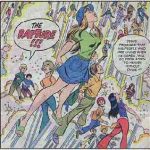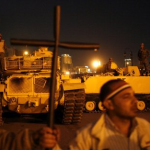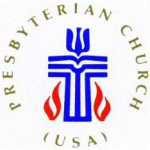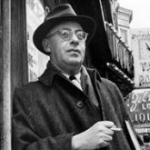
 Source: Huffington Post |Fr. Peter-Michael Preble
Source: Huffington Post |Fr. Peter-Michael Preble
Several years ago I was driving behind a vehicle on the highway and I noticed the bumper sticker on the back. It was kind of funny and I will admit I laughed out loud. The bumper sticker read, “In case of Rapture this vehicle will be left unattended.” OK, I thought it was kind of cute. But how accurate is this bumper sticker?
I will state right up front that the Orthodox Church does not support the so called doctrine of the Rapture. In this post, I will attempt to explain why. I will also state right up front that I do not consider myself a Scripture Scholar or a professional theologian.
So what is the so called doctrine of the Rapture?
Rapture is a popular term used by some Protestant Evangelicals for the rising of the faithful from the dead. We Orthodox do believe that all of the faithful will be raised from the dead.
There is a tendency of belief in the Rapture or what is called “pre-tribulation.” This belief states that the rising of the faithful from the dead will be prior to of after a period of immense trouble or tribulation. After the seven years of tribulation, the belief is then that there will be 1,000 years of peace followed by the day of final judgment.
Where did this belief come from?
Until the 1830s all Christian Churches taught a believed basically the same things about the second coming of Jesus Christ. A member of the Scottish sect the Irvingites, Margaret MacDonald, made the first claim that there would be Rapture and the faithful would be gathered to Christ before the period of persecution. From what I can glean from the research, she was discounted by some people as being “of the Devil” and her prophesies have been discounted.
John Nelson Darby (1800-1882) next picked up the theory of the Rapture and made it popular. The so-called doctrine of the Rapture made its way into the footnotes of a translation of the Bible by Cyrus Ingerson Scofiled and the Scofield Reference Bible. This version of the Bible was widely used in England and America and therefore it was an accepted doctrine of belief.
This is a very elementary treatment of the history of the theory or doctrine of the Rapture, but the intent is not to present the doctrine in totality.
What is the Orthodox view?
Orthodox Christians believe in the second coming of Jesus Christ, the ensuing judgment of our sins and the resulting eternal life in either Heaven or Hell. Everything that Scripture says about a time of tribulation and suffering is accepted, but the faithful will be present for all of it. We will not be spared the sufferings or tribulation. Christ himself tells us that all will suffer and that no one knows when He will return for Judgment Day. “Then they will deliver you up to tribulation and kill you, and you will be hated by all nations for My name’s sake” (Matthew 24:9).
Why do Orthodox not believe in the Rapture?
The Church needs to be suspicious of a doctrine or theory that no church taught for the first 1,800 years of the existence of the Christian Church. This is not enough of a reason to reject this simply out of hand, but it does mean that we need to approach this very carefully. From the Orthodox Church in America:
Much of the reasoning for this theory comes from the Book of Revelation the only book the Orthodox do not use during the Divine Liturgy. The Orthodox Church does not persuade people not to read Revelation. It does caution people to read it with solid background knowledge of the rest of Scripture, especially the New Testament, and with a basic understanding of the times which produced Revelation. At the same time, the Orthodox Church does not accept the notion that everyone can properly interpret the Bible as he or she wants. Some Protestant bodies believe in this, but Orthodoxy does not. We say that the Church has the ability to properly interpret Scripture, and this means that we should study and adopt the interpretations that have been handed down over the 2000 years of the Church’s living history. Given the fact that that which is contained in Scripture is the inspired word of God, revealed to mankind and not to a single individual, no individual has the right or ability to offer “the” definitive interpretation of Scripture. This is especially the case with Revelation, which as noted above cannot be interpreted as one wishes, lest one come to ridiculous conclusions that Gorbachov’s birthmark is the “mark of the beast.”
The theory is also based on shaky Scriptural basis. Of all of the teaching of the Christian Church that have evolved over the 2,000 years history of the Church, this theory was not spoken of until a 15-year-old Scottish girl brought it up. Modern arguments for the Tribulation can be called into question through an evenhanded examination of the passages commonly used when arguing in favor of it. Even among Protestant denominations who believe in a totally literal reading of Scripture rapture is not universally accepted.
Many of the arguments for the rapture have been taken from the Book of Revelation. This book warns us in Chapter 22 verses 18 and 19 that anyone who adds to or takes away from the words in Revelation will meet with punishment from God. St. Peter also warns us in 2 Peter 1:20 that no prophecy is to be of private interpretation.
The unavoidable fact in all of this is that all of us will face judgment. Christ will examine each of us and as a result some will gain eternal life with Him in Heaven and some will gain eternal life without Him in Hell (John 5:29). Everything other than preparing for Christ’s second coming and judgment is nothing more than a distraction, and the question that needs to be asked is: Who would benefit most from the faithful being distracted?

V. Rev. Fr. Peter-Michael Preble is the Pastor of St. Michael’s Orthodox Christian Church in Southbridge, Massachusetts. Read more of Fr. Peter’s writings on his blog at www.frpeterpreble.com




